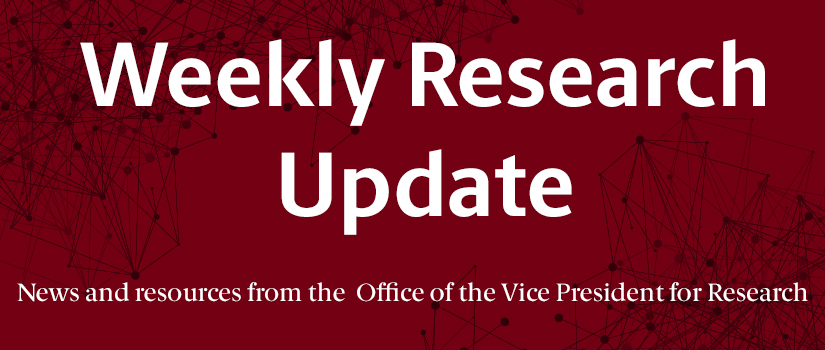Neuroscientist Julius Fridriksson to lead the Office of the Vice President for Research
The Office of the Vice President for Research welcomes a new interim vice president this week. Dr. Julius Fridriksson joined the office as interim vice president for research (VPR) beginning on July 1. Dr. Fridriksson has for years been a prominent member of the UofSC research community, serving as a faculty member in the Department of Communication Sciences and Disorders at the Arnold School of Public Health since 2001 and as SmartState Endowed Chair of Memory and Brain Function, directing the SMARTBrain™ Center, since 2016. He also co-directs the cutting-edge UofSC McCausland Center for Brain Imaging. Dr. Fridriksson brings a wealth of research and administrative experience to his new interim VPR role. Read more about Dr. Fridriksson’s research background and his plans for the coming year in the Office of the Vice President for Research.
NAS and NIH impose consequences for harassers
Both the National Academy of Sciences and National Institutes of Health announce efforts they’ve taken against harassers, including seeing them removed from grants and booted out. The NIH says that 75 principal investigators have been removed from grants due to sexual harassment and other hostile workplace claims in the last three years. Separately, the National Academy of Sciences says that it has removed two members due to sexual misconduct. Prior to 2018, no PI had been removed from an NIH grant for sexual misconduct. The National Academy hadn’t removed any members for that reason prior to this year. Read more in Inside Higher Ed about how these organizations have begun to change that pattern.
Proposed $6.5 billion biomedical agency continues to progress in Congress
Lawmakers are hewing closely to the president’s proposal for a new $6.5 billion science agency as part of a sweeping measure to deliver medical breakthroughs. Known as Cures 2.0, new bipartisan legislation would authorize ARPA-H and also touch on almost every part of the health-care system—from the authorization of medical research to the Food and Drug Administration’s regulation of medical products and Medicare’s payments for cutting-edge treatments. Read more about the legislation, and check out a new Science Magazine commentary on the proposal by White House Office of Science and Technology Policy Director Eric S. Lander and NIH Director Francis S. Collins.
Council on Governmental Relations publishes update on security measures in pending research funding legislation
In early June, the Senate passed the Innovation and Competition Act (formerly known as the Endless Frontier Act), the legislative counterpart to House bills H.R. 2225 and H.R. 3593. The legislation contains significant increases in funding authorizations for NSF and other agencies, and over a dozen provisions pertaining to research security. The Council on Governmental Relations, an association of research universities, medical centers and independent research institutes has published a brief update (pdf) on the legislation to help researchers better understand how the legislation might affect research security.
1 July 2021
